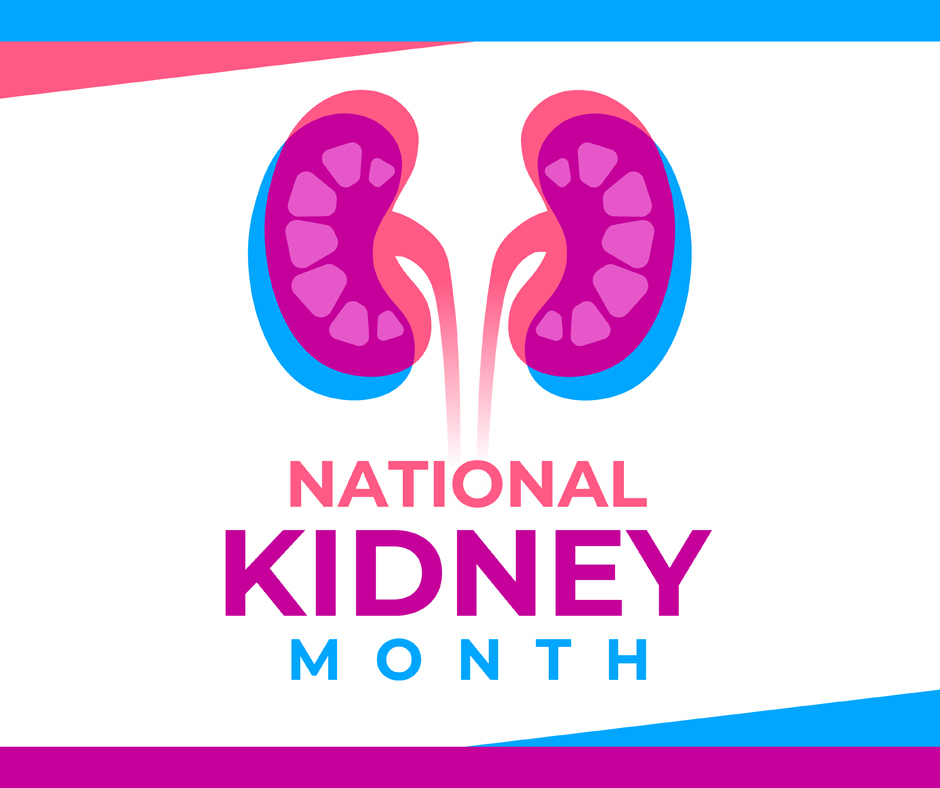How many times per day do you think about your kidneys? If you’re like most healthy adults, the answer is probably zero. Unfortunately, 1 in 3 adults in America are at high risk of developing kidney disease, a staggering statistic that should encourage us all to be more kind to our kidneys. What’s more, 1 in 9 American adults are already living with chronic kidney disease (CKD) – and more than 90% of them have no idea.
Which is why March is set aside for National Kidney Month, a global awareness campaign that seeks to spread awareness about chronic kidney disease and help build better paths to proper kidney care.
Fast Facts about Chronic Kidney Disease (CKD)
Chronic Kidney Disease (CKD) is an umbrella term that refers to the gradual loss of kidney function over time. To help spread awareness about the importance of proper kidney health, here are some fast facts you should know:
- More than 37 million Americans are currently living with CKD, most of them undiagnosed.
- If left untreated, CKD can cause complete kidney failure, a terminal condition that requires a kidney transplant. Kidney diseases are a leading cause of death in America.
- Risk factors for CKD include diabetes, high blood pressure, heart disease, family history, obesity, and being over 60.
- Early CKD has no signs or symptoms. As damage progresses, symptoms may include itching, muscle cramps, nausea, loss of appetite, insomnia, fatigue, and urinary incontinence.
- Early treatment can slow and even prevent the progression of CKD.
How to Observe National Kidney Month
This year, the National Kidney Foundation is calling on Americans to take five healthy steps for their kidneys:
- Get Tested. If you are high-risk for chronic kidney disease, ask your doctor to conduct an ACR urine test or GFR blood test each year. You can also get screened for free through the KEEP Healthy program.
- Reduce NSAIDs. Although convenient, OTC pain relievers like nonsteroidal anti-inflammatory drugs are hard for kidneys to process. If possible, reduce your use of NSAIDs and never exceed the recommended dosage.
- Cut Processed Foods. Processed foods have been linked to kidney disease, cancer, and heart disease. Reduce your consumption of processed foods and focus on healthy eating.
- Exercise Regularly. 30 minutes of moderate physical activity per day is known to help control blood pressure and lower blood sugar, both of which are vital to kidney health.
- Control Diabetes and Blood Pressure. High blood pressure and diabetes are the leading causes of kidney disease and kidney failure. Managing high blood pressure and controlling diabetes through lifestyle changes, medications and regular blood sugar testing are key to preventing kidney damage.

